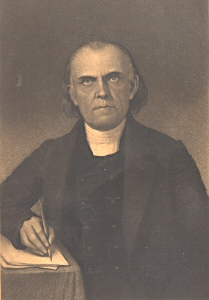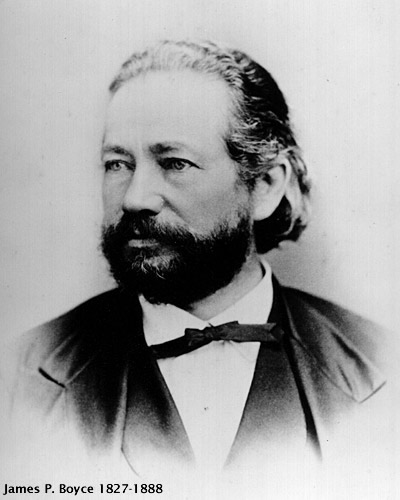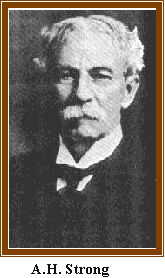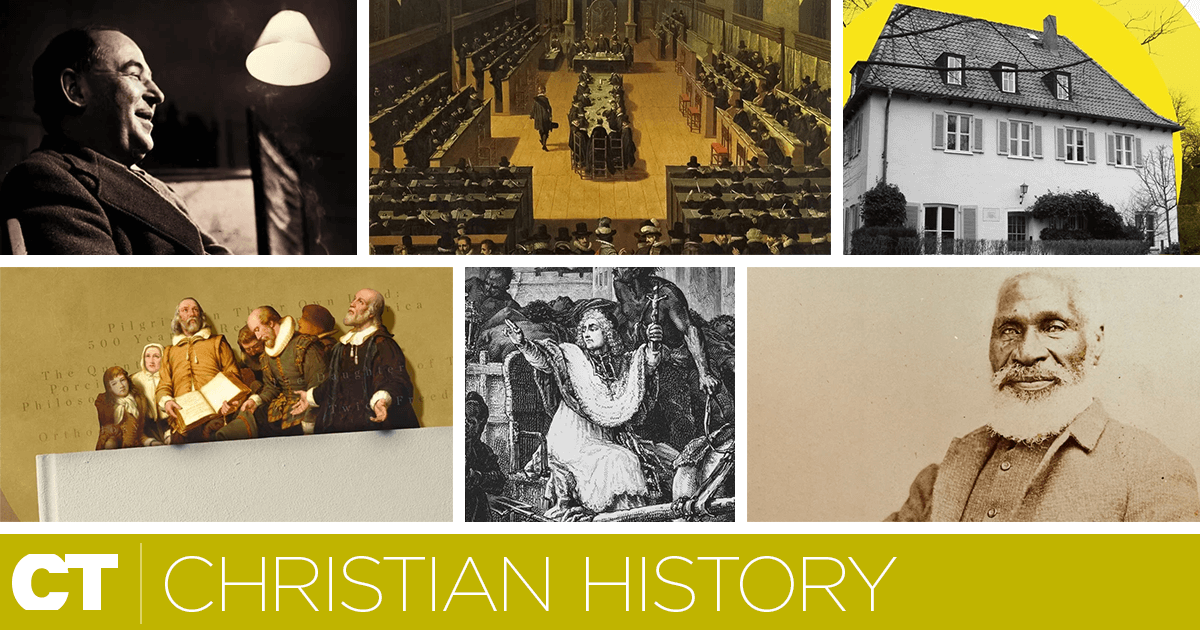From Manual of Theology (1857) by Baptist John L. Dagg

 en.wikipedia.org
en.wikipedia.org
"He stated explicitly, that the day will not come, "unless there be a falling away first, and the man of sin be revealed."It was necessary that time should be allowed for the Romish apostasy. So now, there are various prophecies remaining to be fulfilled; as, the calling of the Gentiles, the conversion of the Jews, and the millennial state of the Church. All these must be, accomplished before the coming of Christ; and, while these prophecies remain unfulfilled, believers should not permit themselves to be troubled in mind by those who would persuade them that the end of the world is just at hand." John L. Dagg, very early SBC theologian
From Abstract of Systematic Theology (1887) by Baptist James Petigrue Boyce

 en.wikipedia.org
en.wikipedia.org
"Not only is it not taught that there are two resurrections of the body, the one of the righteous at the second coming of the Lord, and the other of the wicked at the general judgement after an interval of one thousand years; but the judgement and the coming of the Lord are recognized as contemporaneous. The day of both events is called by various names, some of which are repeated more than once: as "the day," (1 Cor. 3:13); "that day," (Matt 7:22); "the day of judgement," (2 Pet. 2:9); "the day of God," (2 Pet. 3:12); "the day of the Lord," (1 Thess. 5:2); "the day of our Lord Jesus Christ," (1 Cor. 1:8); "the day of Jesus Christ," (Phil. 1:6); "the day of Christ," (Phil. 2:16); "the day of the Lord Jesus," (1 Cor. 5:5); "the last day," (John 6:39); "the great day," (Jude 6); "the great day of their wrath," (Rev. 6:17); "the day of wrath and revelation of the righteous judgement of God," (Rom. 2:5); "that great and notable day of the Lord," (Acts 2:20); "the day when God shall judge the secrets of men . . . by Jesus Christ," (Rom 2:16); "the day that the Son of Man is revealed," (Luke 17:30); "the coming of our Lord Jesus," (1 Thess. 3:13); "the appearing of our Lord Jesus Christ," (1 Tim. 6:14); "the revelation of Jesus Christ," (1 Pet. 1:13); the "appearing of glory of our Great God and Saviour Jesus Christ," (Tit. 2:13), etc.....
The thousand years of the binding of Satan is a period of time, of unknown, perhaps of indefinite length, possibly from the time of Christ's conquest of Satan, in his death, resurrection, and ascension, or possibly from some other period, even perhaps of a later epoch in the history of Christianity, during which Satan is restrained from the exercise of the power he might otherwise put forth against man; the thousand years terminating at some time prior to the day of Christ's second coming; at which time Satan shall be loosed to consummate his evil deeds by such assaults upon the saints as shall bring down the final vengeance of God at the appearing of Christ in glory. "
 www.reformedreader.org
www.reformedreader.org
Augustus Hopkins Strong, System of Theology, (1906) A. H. Strong was Baptist

 en.wikipedia.org
en.wikipedia.org
"Relation of Christ’s Second Coming to the millennium.
The Scripture foretells a period, called in the language of prophecy “a thousand years,” when Satan shall be restrained and. the saints shall reign with Christ on the earth. A comparison of the passages bearing on this subject leads us to the conclusion that this millennial blessedness and dominion is prior to the Second Advent."
New Hampshire Confession of Faith, (1833) A Baptist Confession
"XVIII. Of the World to Come
We believe that the end of the world is approaching; that at the Last Day Christ will
descend from heaven, and raise the dead from the grave to final retribution; that a solemn separation will then take place; that the wicked will be adjudged to endless punishment, and the righteous to endless joy; and that this judgment will fix forever the final state of men in heaven or hell, on principles of righteousness."
It is clear that not only was Post-Mil a historic Baptist position, but the Darby/Scofield Dispensationalist scheme did not appear until very recent history of the church.

John L. Dagg - Wikipedia
"He stated explicitly, that the day will not come, "unless there be a falling away first, and the man of sin be revealed."It was necessary that time should be allowed for the Romish apostasy. So now, there are various prophecies remaining to be fulfilled; as, the calling of the Gentiles, the conversion of the Jews, and the millennial state of the Church. All these must be, accomplished before the coming of Christ; and, while these prophecies remain unfulfilled, believers should not permit themselves to be troubled in mind by those who would persuade them that the end of the world is just at hand." John L. Dagg, very early SBC theologian
From Abstract of Systematic Theology (1887) by Baptist James Petigrue Boyce

James Petigru Boyce - Wikipedia
"Not only is it not taught that there are two resurrections of the body, the one of the righteous at the second coming of the Lord, and the other of the wicked at the general judgement after an interval of one thousand years; but the judgement and the coming of the Lord are recognized as contemporaneous. The day of both events is called by various names, some of which are repeated more than once: as "the day," (1 Cor. 3:13); "that day," (Matt 7:22); "the day of judgement," (2 Pet. 2:9); "the day of God," (2 Pet. 3:12); "the day of the Lord," (1 Thess. 5:2); "the day of our Lord Jesus Christ," (1 Cor. 1:8); "the day of Jesus Christ," (Phil. 1:6); "the day of Christ," (Phil. 2:16); "the day of the Lord Jesus," (1 Cor. 5:5); "the last day," (John 6:39); "the great day," (Jude 6); "the great day of their wrath," (Rev. 6:17); "the day of wrath and revelation of the righteous judgement of God," (Rom. 2:5); "that great and notable day of the Lord," (Acts 2:20); "the day when God shall judge the secrets of men . . . by Jesus Christ," (Rom 2:16); "the day that the Son of Man is revealed," (Luke 17:30); "the coming of our Lord Jesus," (1 Thess. 3:13); "the appearing of our Lord Jesus Christ," (1 Tim. 6:14); "the revelation of Jesus Christ," (1 Pet. 1:13); the "appearing of glory of our Great God and Saviour Jesus Christ," (Tit. 2:13), etc.....
The thousand years of the binding of Satan is a period of time, of unknown, perhaps of indefinite length, possibly from the time of Christ's conquest of Satan, in his death, resurrection, and ascension, or possibly from some other period, even perhaps of a later epoch in the history of Christianity, during which Satan is restrained from the exercise of the power he might otherwise put forth against man; the thousand years terminating at some time prior to the day of Christ's second coming; at which time Satan shall be loosed to consummate his evil deeds by such assaults upon the saints as shall bring down the final vengeance of God at the appearing of Christ in glory. "
Abstract of Systematic Theology, James P. Boyce | The Reformed Reader
The Reformed Reader is committed to the historic Baptist and Reformed faith. Learn and research Baptist history, doctrine, theology and biographies.
Augustus Hopkins Strong, System of Theology, (1906) A. H. Strong was Baptist

Augustus Hopkins Strong - Wikipedia
"Relation of Christ’s Second Coming to the millennium.
The Scripture foretells a period, called in the language of prophecy “a thousand years,” when Satan shall be restrained and. the saints shall reign with Christ on the earth. A comparison of the passages bearing on this subject leads us to the conclusion that this millennial blessedness and dominion is prior to the Second Advent."
New Hampshire Confession of Faith, (1833) A Baptist Confession
"XVIII. Of the World to Come
We believe that the end of the world is approaching; that at the Last Day Christ will
descend from heaven, and raise the dead from the grave to final retribution; that a solemn separation will then take place; that the wicked will be adjudged to endless punishment, and the righteous to endless joy; and that this judgment will fix forever the final state of men in heaven or hell, on principles of righteousness."
http://baptiststudiesonline.com/wp-content/uploads/2007/02/the-new-hampshire-confession-of-faith.pdf
** The New Hampshire Confession teaches a general resurrection and judgment, not necessarily "Post-Mil".It is clear that not only was Post-Mil a historic Baptist position, but the Darby/Scofield Dispensationalist scheme did not appear until very recent history of the church.



